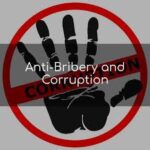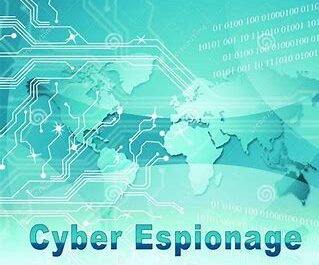Corruption and bribery represent significant ethical and legal issues in societies worldwide, including the United States. This essay explores the nature of corruption and bribery, their impacts on individuals and institutions, the factors contributing to their prevalence, and strategies for prevention and combatting these practices.
Understanding Corruption and Bribery
Definition:
Corruption refers to the abuse of entrusted power for personal gain, often involving bribery, extortion, fraud, or embezzlement. Bribery specifically involves offering, giving, receiving, or soliciting something of value to influence the actions of an individual in a position of power or authority.
Forms of Corruption:
Corruption can manifest in various forms, including political corruption, corporate corruption, judicial corruption, and bureaucratic corruption. It undermines the rule of law, distorts market mechanisms, erodes public trust in institutions, and perpetuates inequality and injustice.

Impacts of Corruption and Bribery
Economic Impact:
Corruption and bribery distort market competition, hinder economic growth, and discourage foreign investment. They divert resources away from productive uses, perpetuate inefficiency and rent-seeking behavior, and contribute to poverty and inequality.
Social Impact:
Corruption undermines social cohesion and trust in public institutions, eroding the legitimacy of governments and fostering cynicism and apathy among citizens. It exacerbates social disparities, as resources are diverted towards the wealthy and powerful at the expense of the marginalized and vulnerable.
Political Impact:
Corruption undermines democratic governance, as elected officials and public servants prioritize the interests of corrupt elites over the needs of the broader population. It undermines the rule of law, subverts democratic processes, and erodes public confidence in the political system.
Factors Contributing to Corruption and Bribery
Lack of Transparency:
Inadequate transparency and accountability mechanisms create opportunities for corruption to flourish, as officials can operate without fear of detection or consequences. Weak regulatory frameworks and enforcement mechanisms further exacerbate the problem.
Culture of Impunity:
When corrupt practices go unpunished or are met with leniency, it sends a signal that corruption is acceptable or even expected behavior. A culture of impunity undermines efforts to combat corruption and perpetuates a cycle of dishonesty and malfeasance.
Greed and Self-Interest:
At the individual level, greed, ambition, and self-interest can drive individuals to engage in corrupt activities in pursuit of personal gain. In environments where ethical standards are low, individuals may rationalize corrupt behavior as necessary for survival or success.

Strategies for Prevention and Combatting Corruption and Bribery
Strengthening Legal and Regulatory Frameworks:
Implementing and enforcing robust anti-corruption laws, regulations, and oversight mechanisms is essential for deterring corrupt practices and holding perpetrators accountable. This includes measures to enhance transparency, strengthen whistleblower protections, and improve asset recovery processes.
Promoting Transparency and Accountability:
Enhancing transparency in government operations, public procurement processes, and financial transactions helps to expose corruption and reduce opportunities for abuse. Open data initiatives, citizen engagement platforms, and independent auditing bodies can promote accountability and integrity in public institutions.
Fostering Ethical Leadership:
Cultivating a culture of integrity and ethical leadership is crucial for combatting corruption from within organizations and institutions. Training programs, codes of conduct, and ethical standards can help instill values of honesty, fairness, and accountability among public officials and private sector actors.
Empowering Civil Society and Media:
Civil society organizations, independent media outlets, and investigative journalists play a critical role in exposing corruption, raising public awareness, and holding governments and businesses accountable. Protecting freedom of speech and press freedom is essential for fostering a vibrant and vigilant civil society.
Role of Technology in Combatting Corruption
Technology can be a powerful tool in the fight against corruption and bribery:
Digitalization of Government Services:
Implementing digital platforms for government services can reduce opportunities for corruption by streamlining administrative processes, reducing bureaucratic discretion, and increasing transparency in service delivery.
Open Data and Civic Tech:
Open data initiatives and civic tech platforms empower citizens to monitor government activities, access information about public spending, and report instances of corruption or misuse of public resources.
Blockchain Technology:
Blockchain has the potential to enhance transparency and accountability in financial transactions and supply chains by providing secure and immutable records of transactions, reducing the risk of corruption and fraud.
Psychological and Cultural Factors
Understanding the psychological and cultural factors that contribute to corrupt behavior is essential for developing effective anti-corruption strategies:
Psychological Drivers:
Psychological factors such as moral disengagement, cognitive biases, and social influence can influence individuals’ willingness to engage in corrupt acts. Strategies that address these underlying psychological mechanisms can help deter corrupt behavior.
Cultural Norms:
Cultural norms and attitudes towards corruption vary across societies, influencing perceptions of acceptable behavior and the effectiveness of anti-corruption measures. Promoting a culture of integrity and ethical conduct requires addressing entrenched cultural attitudes and norms that tolerate or condone corruption.

Economic Impacts
Corruption and bribery have significant economic consequences, undermining economic development, stifling innovation, and exacerbating poverty and inequality:
Distorted Markets:
Corruption distorts market competition, leading to inefficiency, reduced productivity, and misallocation of resources. Businesses may be forced to engage in corrupt practices to remain competitive, further perpetuating a culture of corruption.
Investment Climate:
Corruption deters foreign investment, as investors perceive corrupt environments as risky and unpredictable. Countries with high levels of corruption often struggle to attract investment and foster sustainable economic growth.
Erosion of Trust:
Corruption erodes public trust in institutions and undermines confidence in the rule of law, deterring entrepreneurship, innovation, and investment in the formal economy.
International Corruption
Corruption is a global phenomenon that transcends national borders, posing challenges for international cooperation and enforcement:
Transnational Corruption:
Transnational corruption involves corrupt practices that span multiple countries, such as bribery of foreign officials, money laundering, and illicit financial flows. International cooperation and coordination are essential for combatting transnational corruption effectively.
Global Anti-Corruption Efforts:
International organizations, such as the United Nations, World Bank, and OECD, play a crucial role in promoting anti-corruption efforts and supporting countries in implementing effective anti-corruption measures. Initiatives such as the UN Convention against Corruption provide a framework for international cooperation and exchange of best practices.
Challenges of Enforcement:
Enforcement of anti-corruption laws and regulations across borders can be challenging due to differences in legal systems, jurisdictional issues, and lack of cooperation between countries. Strengthening international legal frameworks and enhancing mutual legal assistance mechanisms can help overcome these challenges.
By addressing the psychological, cultural, economic, and institutional drivers of corruption, leveraging technology for transparency and accountability, and promoting international cooperation and collaboration, it is possible to reduce the prevalence of corruption and build more resilient, inclusive, and sustainable societies.
Conclusion
Corruption and bribery pose formidable challenges to the integrity, stability, and prosperity of societies around the world, including the United States. Addressing these issues requires a concerted effort from governments, civil society, the private sector, and international partners. By implementing comprehensive anti-corruption measures, promoting transparency and accountability, fostering ethical leadership, and empowering citizens to demand integrity and honesty from their leaders, it is possible to combat corruption and build more just, equitable, and democratic societies.



